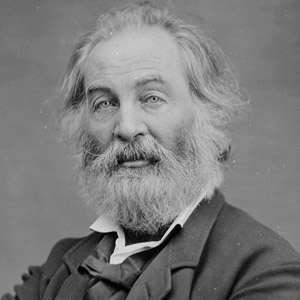
Walt Whitman (1819 – 1892) was an American poet, essayist, and journalist. Whitman is among the most influential poets in the American canon, often called the father of free verse. Much of his work was considered controversial in its time, and he received little public acclaim for his poems during his lifetime. Whitman worked as a journalist, a teacher, a government clerk, and — in addition to publishing his poetry — was a volunteer nurse during the American Civil War.

Quotes by Walt Whitman…
A heroic person walks at his ease through and out of that custom or precedent or authority that suits him not.
I exist as I am — that is enough. If no other in the world be aware, I sit content.
It is not far, it is within reach. Perhaps you have been on it since you were born and did not know.
You have not known what you are, you have slumbered upon yourself all your life… Whoever you are! Claim your own.
I do not trouble my spirit to vindicate itself or be understood… I see that the elementary laws never apologize.
Dear camerado! I confess I have urged
you onward with me, and still urge you,
without the least idea what is our destination,
Or whether we shall be victorious, or
utterly quell’d and defeated.
There is apart from mere intellect, in the make-up of every superior human identity, a wondrous something that realizes without argument, frequently without what is called education (though I think it the goal and apex of all education deserving the name), an intuition of the absolute balance, in time and space, of the whole of this multifariousness, this revel of fools, and incredible make-believe and general unsettledness, we call the world.
A soul-sight of that divine clue and unseen thread which holds the whole congeries of things, all history and time, and all events, however trivial, however momentous, like a leashed dog in the hand of the hunter. Of such soul-sight and root-centre for the mind mere optimism explains only the surface.
The central urge in every atom, to return to its divine source and origin.
Dismiss whatever insults your own soul, and your very flesh shall be a great poem, and have the richest fluency, not only in its words, but in the silent lines of its lips and face, and between the lashes of your eyes, and in every motion and joint of your body.
